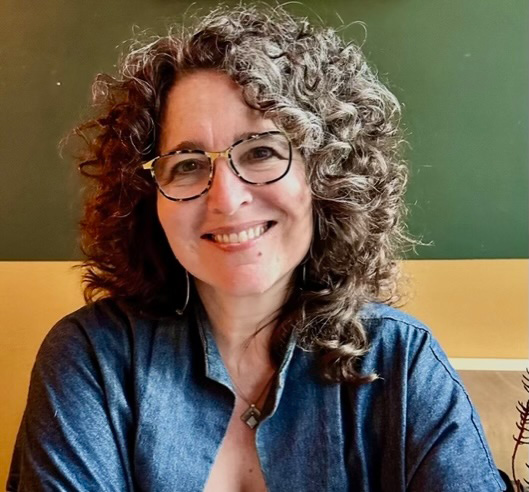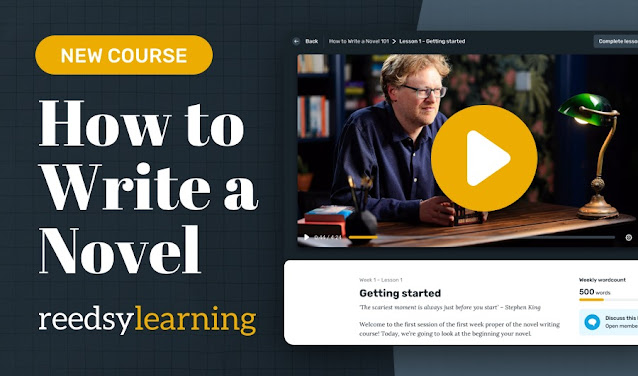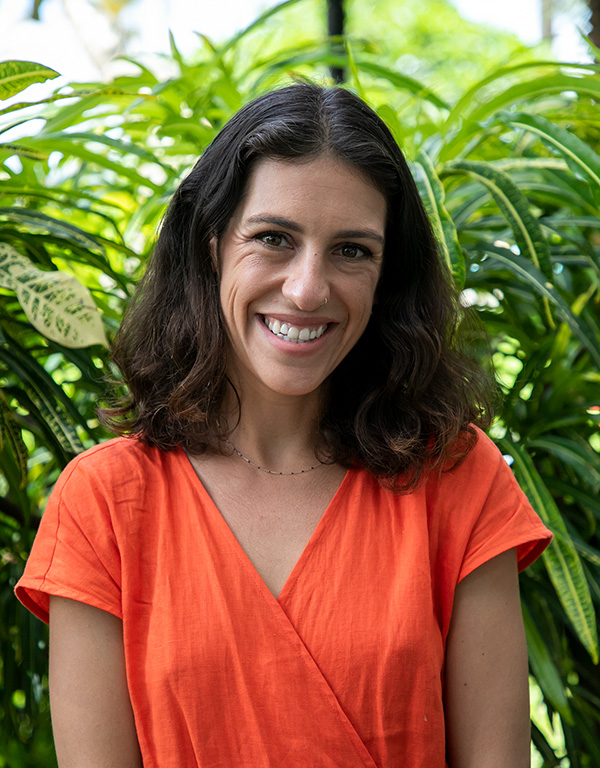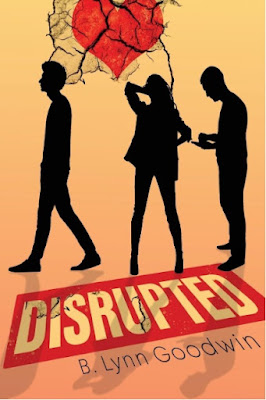By Angela Mackintosh
I’ve always wanted to write a novel, but I find the length and process overwhelming. I’ve participated in NaNoWriMo several times and have even “won” twice, writing fifty thousand words in one month. After cutting pages of summary and exposition and plain bad writing, the usable scenes became fodder for pieces that I’ve had published in literary journals. Although I have several half-written book drafts on the cloud, I began to accept the idea that I’d never be a novel writer. Writing short pieces was more my style, and there’s nothing wrong with that.
Then, earlier this year, an idea for a mystery/horror novel grabbed hold of me and wouldn’t let go. I knew that if I wanted to write a solid draft, complete with a riveting plot, multiple POV characters, and a twisty mystery at its core, I needed more than NaNoWriMo and short-term workshops; I needed a complete course on novel writing.
As a fan of Reedsy, I jumped at the chance to take Reedsy’s
How to Write a Novel Master Class with author Tom Bromley. I hadn’t heard of Tom, who is the head of learning at Reedsy, and also an author, editor, and ghostwriter, but I immediately liked his videos and knew he’d be a great instructor.
Researching Tom’s background, I found out he worked in the publishing industry for years as a commissioning editor for Little, Brown, and then at Pavilion, where he founded the imprint, Portico. He’s edited and commissioned over a hundred titles, authored eight traditionally published books under his name/pen name, and ghostwritten fifteen titles, including prize winners and international bestsellers. He was definitely qualified, and I was thrilled to learn from him. Tom is a musician, and during his webinars, you’ll often see a double bass in the background! But what impressed me most about Tom Bromley during the class was his kind, easy-going personality, editing skills, and in-depth craft knowledge, all of which made this course a phenomenal learning experience.
This is the most comprehensive course I’ve ever taken. It’s extremely well designed. Each short daily lesson builds upon the next in a logical order and covers all the foundations of fiction writing. I’m about halfway through the course, and it’s had such a positive impact on my writing that I’m confident I will finish a novel draft this year. Reedsy’s How to Write a Novel Master Class is everything you need to write your novel!
You might be wondering if this course is right for you. In this post, I’ll share my review of the course, let you know what you can expect from it, and give you an idea of how the course works. I’ll also share some tips to help you succeed.
Before we get started, I want to be fully transparent and let you know that while I wasn’t paid to write this review, the link to the course is an affiliate link. If you sign up for the course, a small portion will be donated to WOW, which helps support women writers. This won’t affect your total price, and it didn’t influence my review.
What You Get in Reedsy’s How to Write a Novel Course
Before taking the course, you can
enroll (without putting in any payment information) to receive a free video on character. I recommend checking it out to get a taste of Tom’s teaching style. Immediately you’ll notice the excellent quality of the video, graphics, and sound. I appreciate the effort that went into creating these videos, not only the production quality, but the easily digestible lessons that focus on one craft element per day.
Prep Sessions
Prior to the class, there are prep sessions that cover the Five Ps:
- Pitch
- Protagonist
- Plot
- Point of View
- Place
If you’ve studied Save the Cat, you’ll know they also start their structure with a pitch or logline, which is a one-sentence summary of your book. It’s a challenging exercise, but one that puts you in the mindset of thinking about your story as a marketable product.

I suggest starting the prep sessions at least a couple of weeks prior to the class to hone your idea and plot, so when you show up for the first day of class, you are ready to write. The course has two weeks that cover plotting, which is week three and week twelve, but I got the feeling that Tom likes to keep things a little loose in the beginning to allow for movement and surprise. He believes a plot should not be completed entirely because he likes to be entertained. It reminds me of the Robert Frost quote, “No tears in the writer, no tears in the reader. No surprise in the writer, no surprise in the reader.” While there are examples and suggestions for plotting, there are no specific plotting structures required. If you are a plotter, I’d recommend nailing down your outline before you start the course, because the course’s focus is on writing.
Schedule
The course runs for 101 days, with the goal of completing a 75,000-word draft. Your target is 1,000 words per weekday or 5,000 words per week.
Monday through Friday daily lessons: The daily lessons are 10- to 15-minute videos on a craft topic and include reading and writing exercises. Be prepared to set aside an hour if you want to do all the reading and writing exercises and follow the links to related articles.
Saturday author panel lesson: Tom interviews various authors in one video and they discuss a craft topic. These author’s books are included in the lesson excerpts, so it’s fun to get a look at their behind-the-scenes writing process.
Sundays are rest days, and Tom suggests reading a good book or hanging out in the community area and chatting with fellow writers.
Monday Live Masterclass: Every Monday you can attend a live webinar, which is a live editing session with Tom (my favorite!), a deep dive into a craft technique, or a guest author discussion. There is a wide range of authors in all genres.
Feedback Friday: You can sign up to trade feedback with a writer in your cohort, where you swap up to 1,000 words, with the goal of completing your critique by the end of the weekend.
The interactive community forum is open throughout the entire course for support and discussion.
20+ Hours of Amazing Daily Video Lessons
You’ll receive daily video lessons that focus on one craft element. Tom is an excellent teacher who breaks down hard concepts into practical advice and easy steps. He uses novel excerpts as examples in the videos and they are also available as downloadable scans. The authors and books chosen delightfully surprised me because many of the authors were new to me and all the reads were eye-opening. There is a wonderful mix of everything from literary fiction to mystery/thriller and more. Some books were on my reading list, like
Ordinary People and
Black Cake.
There are links to craft articles for further study. Writing exercises focus on the craft element of the day, and I found these incredible. Both the lessons and the exercises came at the perfect time to create new depth and innovation in my scenes. It felt like Tom was reading my mind! For instance, I had a scene where my characters pull into a parking lot. The exercise for the day was to write a short 100-word scene of two drivers arguing over a particular space. Another time, the excerpt focused on a letter that changed everything. I was writing about a party flyer that was being passed around the junior college quad that would set my plot in motion. It was uncanny how these lessons coincided with what I was writing!
Here’s a comprehensive outline of all the lessons in the class:
Week 1: BeginningsDay 1: Beginnings
Day 2: Starting Again
Day 3: Introducing Character
Day 4: Backstory
Day 5: Grounding the Reader
Day 6: Starting Points
Day 7: Sundays are always rest days
Week 2: Secret Sauce
Day 8: Movement
Day 9: Change
Day 10: Space
Day 11: Peril
Day 12: Voice
Day 13: Opening Pages
Week 3: Character
Day 15: Caring and Liking
Day 16: Flaws
Day 17: Inner Tension
Day 18: Change
Day 19: Feeling
Day 20: Character
Week 4: Plot Skills 1
Day 22: Story DNA
Day 23: Scene vs. Summary
Day 24: Revealing Information
Day 25: Flashback
Day 26: Mystery, Surprise, and Suspense
Day 27: Plotting and Pantsing
Week 5: Description
Day 29: The Senses
Day 30: Movement
Day 31: Color
Day 32: Small Details
Day 33: People, Past, and POV
Day 34: Description
Week 6: Dialogue
Day 36: Voice
Day 37: Conflict
Day 38: Rhythm
Day 39: Real Speech
Day 40: Body Language
Day 41: Worldbuilding
Week 7: Texture
Day 43: Action
Day 44: Thought
Day 45: Dialogue vs. Description
Day 46: Dialogue, Description, and Pace
Day 47: Mixing Together
Day 48: Inspiration
Week 8: Middles
Day 50: The Halfway Point
Day 51: The Midpoint
Day 52: Wants and Needs
Day 53: Links
Day 54: Thinking Forward
Day 55: Reading
Week 9: Writing Skills
Day 57: Words
Day 58: Verbs
Day 59: Sounds
Day 60: Sentences
Day 61: Paragraphs
Day 62: Writing Challenges
Week 10: Writing Techniques
Day 64: Rule of Three
Day 65: Repetition
Day 66: Build
Day 67: Contrast
Day 68: Imagery
Day 69: Writing Routines
Week 11: Chapters
Day 71: Chapters Overview
Day 72: Beginnings and Endings
Day 73: Lengths
Day 74: Chapter Structure
Day 75: Pulling Together
Day 76: Research
Week 12: Plot Skills 2
Day 78: Foreshadowing
Day 79: Group Scenes
Day 80: Dovetailing
Day 81: Time
Day 82: Punctuating a Scene
Day 83: Feedback
Week 13: Doubling Up
Day 85: Action and Story
Day 86: Action and Character
Day 87: Description and Story
Day 88: Description and Character
Day 89: Dialogue and Story
Day 90: Editing
Week 14: Endings
Day 92: Resolution
Day 93: Bookending
Day 94: Imagery
Day 95: Movement
Day 96: Possibility
Day 97: Endings
Week 15: Next Steps
Day 99: Editing Plan
Day 100: Editing
Day 101: The End
Live Sessions and Masterclasses
There is one live session per week on Monday. The session runs for an hour and is:
- a mixture of interviews with guest authors
- a deep dive on various craft topics
- a live editing session with Tom
You can sign up to have your work live edited by Tom, and I think many students will agree that those sessions are the best thing ever! Tom is an expert editor who is great at dissecting work and pointing out what needs to be cut, developed, and more. It’s rare to see a publishing house editor in action. This is helpful not only for the writer getting her work edited, but also for any writer who wants to learn how to edit. All live sessions are recorded.
Feedback Partners
You can trade work up to 1,000 words with someone in your cohort. The pairings are assigned. It’s not mandatory, but if you want to take advantage of it, it’s always useful to get eyes on your work. The critiques can be challenging to give and receive, since you’re only providing feedback on a small portion of the manuscript. Tom shares community guidelines and etiquette for giving a constructive critique. Manuscripts are traded on Fridays and critiques should be completed by the end of the weekend.
Community Forum
Included is twelve months of the community forum. This is a place to talk shop and relax with fellow writers. Discussions are on everything from the muddy middle to staying motivated to what your writing space looks like. The community leaders, like the wonderfully talented Felicia Bengtsson, pose thought-provoking discussions and make writers feel comfortable. Tom is also writing a novel and shares his own writing progress and frustrations, which really makes me feel like he’s one of us. It’s a safe and inspiring learning atmosphere. Writers take part from all over the world, and the community is quite active.
12-Month Access to Weekly Live Webinars and Forum; Lifetime Access to the Lessons
You can participate in the community forum and join weekly live webinars, including live editing sessions, for a year! You also have lifetime access to the lessons. This is super helpful because you can actually take the course three or four times in one year as you work on revisions. Or maybe you slowed down like I did and fell a little behind on the lessons. Not to worry, you can make your own schedule and work at your own pace. I’m about halfway through the course, and I plan on taking it a couple times this year to finish a first draft. I find the daily videos inspiring and the highlight of my day.
Tips to Succeed in the Course
Time Commitment
Be prepared to spend at least 10-15 hours a week on the course. The video lessons are only around 15 minutes, but I’d factor in at least an hour if you want to read all the novel excerpts and try the writing exercises. The prompts only call for around a hundred words, which can be done on a timer, but you may also want to follow the links to read more about a craft technique. You’ll also need to schedule time to write 1,000 words per weekday and to attend the weekly live hour-long webinar.
Plot in Advance
Like I mentioned earlier, there are five prep sessions, and one covers plotting, but it is fairly quick. If you are a plotter, take time before you start the course to fill out your Save the Cat Beat Sheet or your three-act structure or whatever you plan on using because that is not covered in depth.
There are plenty of great articles on Reedsy about structure, like this one on “
How to Outline a Novel in 9 Easy Steps,” and even a free course, “
How to Plot a Novel Using 3-Act Story Structure.” Take advantage of those to prepare for the course. However, if you dive into the course without an outline, like I did, the lessons will guide you through what you need to know and a spontaneous structure will occur. I had a basic idea and plot outline in my head, but I didn’t write it down. Instead, I used the daily lessons as a guide to walk me through each scene and chapter. After I run through the entire course, I will most likely rearrange scenes for impact using a structure like Save the Cat.
Reedsy Novel Writing Software
Reedsy’s novel writing app is free and integrated in the learning dashboard. You can take advantage of this perk, and I think I might use it or invest in Scrivener soon. I’m currently writing in Word documents and it’s getting hard to track. The advantages of the Reedsy app is it allows for collaborative editing and takes care of formatting and conversion if you are going to self-publish. You can find out more about that here:
https://reedsy.com/write-a-book
Be Prepared to Work
This is an obvious tip, but if you're going to invest in this course, remember that it will not magically make you write a novel. You need to put in the work and commit to a daily writing habit. You get out of it what you put in!
Is the Reedsy Novel Writing Class Worth It?
Reedsy’s How to Write a Novel Master Course costs $1249, which is definitely expensive, but in my opinion, it’s worth it for a complete 101-day novel writing course, and one that you can take throughout the entire year. I usually take several writing workshops a year for shorter work, which quickly adds up to the same price tag. If you break it down, Reedsy's course comes out to roughly $12.37 a day (for 101 days) or $3.42 a day (for a year), which is not bad for a daily lesson, writing exercises, accountability, community, feedback, masterclasses, and more. If you can afford it, I think it’s worth it and can change your writing life.
This course is for writers who want to learn how to write a novel with everything they need wrapped up in one package. NaNoWriMo didn’t work for me because it isn’t guided. If you want to learn how to tell a compelling story, develop authentic characters, dialogue, setting, description, create tension, employ literary techniques, and more, then
Reedsy’s How to Write a Novel Master Class is for you! The course is fun and inspiring and provides a practical approach and lots of sparks to help you write your novel.
Tom is an excellent teacher who shows you how to write through examples and makes craft techniques easy to understand. The course is expertly designed, and the community is lively and engaging. It’s hard to think of any drawbacks. The only one I could come up with is that the instructor doesn’t edit all of your work. However, the course includes live editing sessions with Tom and weekly peer feedback.
To get a free lesson of the class before you decide, you can enroll without putting in any payment info, and get access to the learning dashboard and
watch the first lesson for free.
As with any class, you get out of it what you put in. If you want to write a novel this year, and you can invest in your writing and put in the time, I say go for it!






.jpg)





.png)
.png)


%20(002).jpg)













